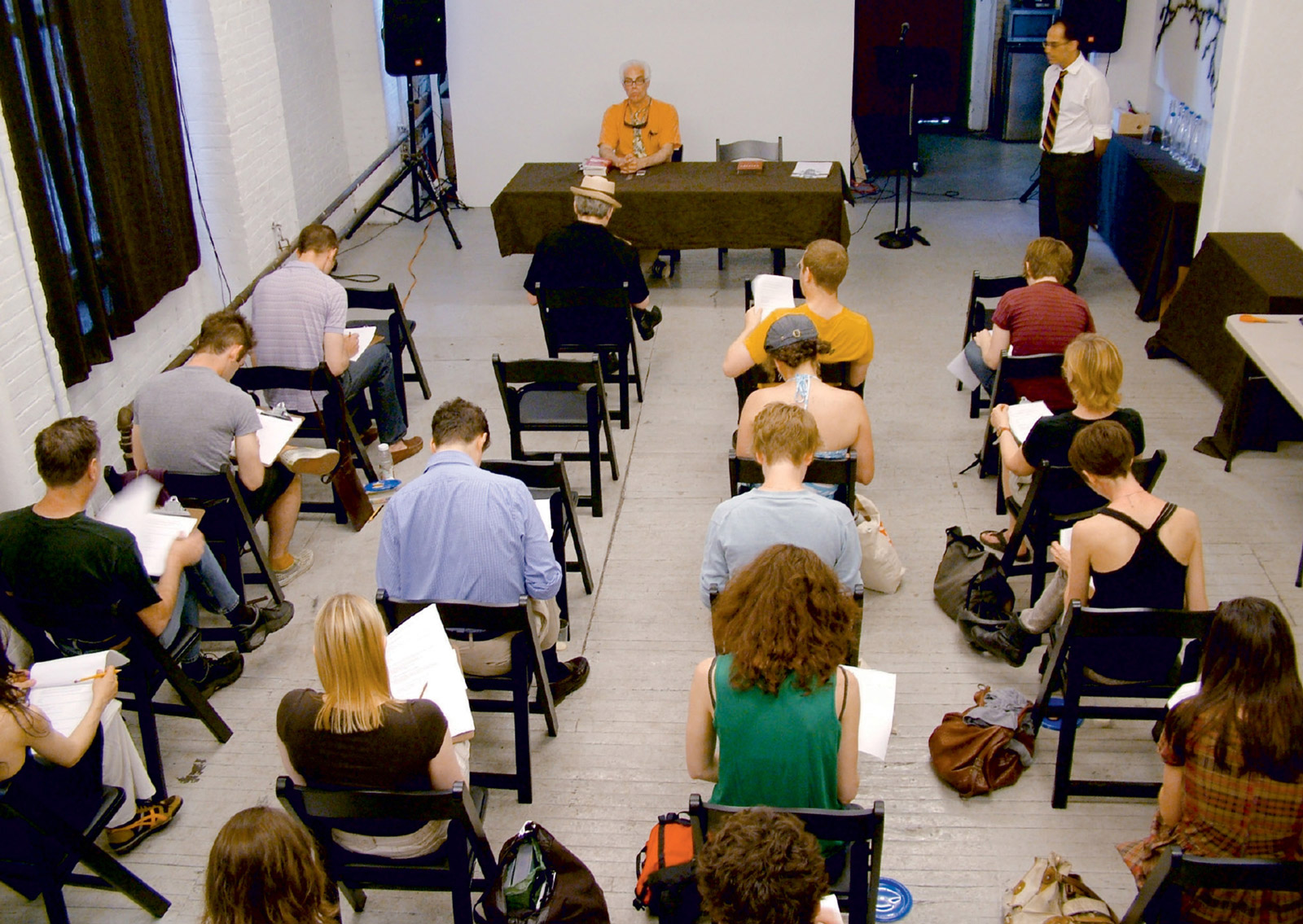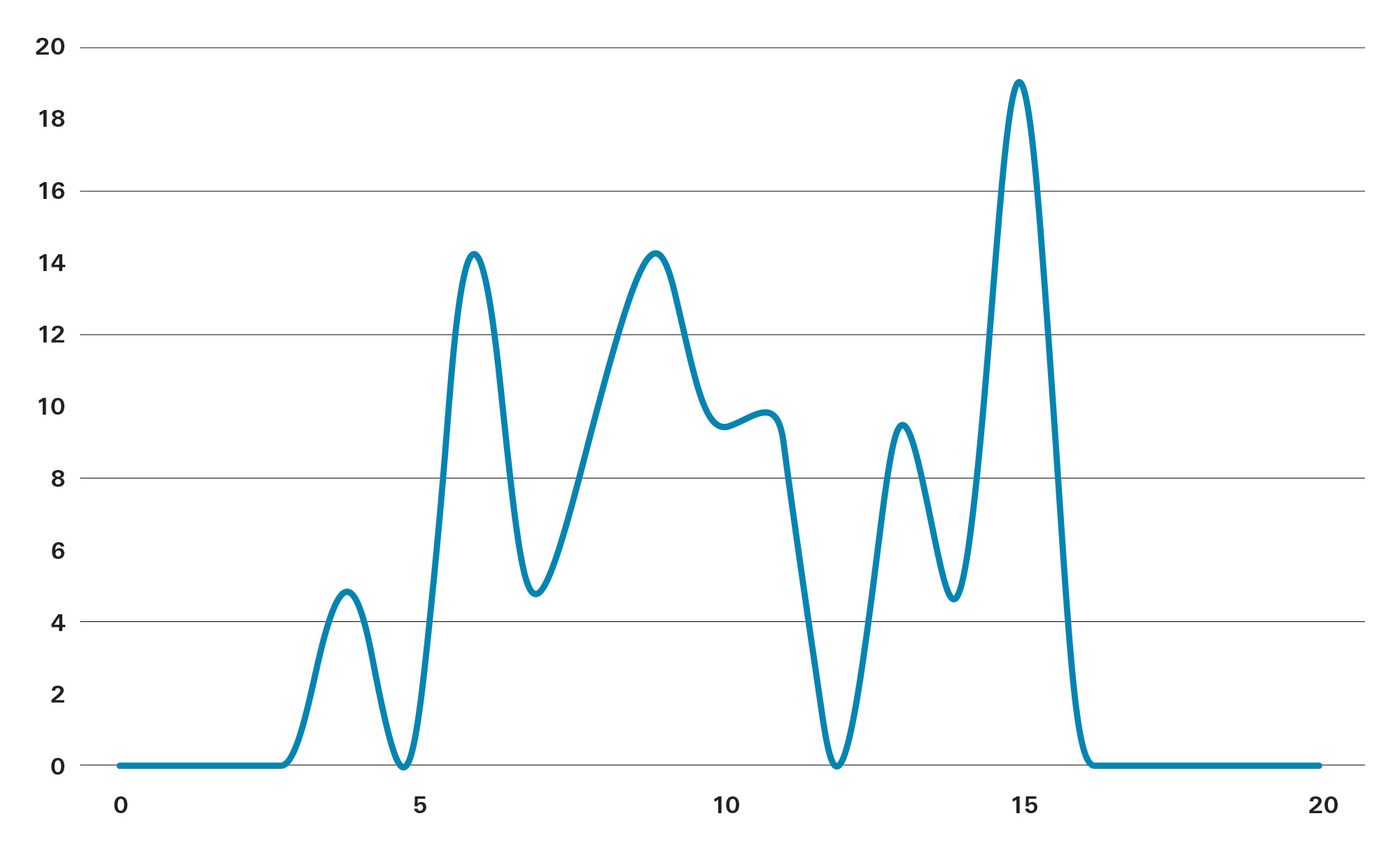Pencils Up!
Cabinet puts its subscribers to the test
Cabinet

On the afternoon of Saturday, 23 May, twenty-one Cabinet subscribers reported to our office in Brooklyn. They came in response to a cryptic email asking for help on a “special project.” The email hinted at a test—a few participants had even brought pencils, as it had suggested—but no one knew exactly what was involved. After plying them with cookies and milk, we explained the nature of the experiment: they were to take a twenty-question multiple-choice exam that would assess how closely they had been reading Cabinet. (We did not tell them that in one especially fiendish iteration of this idea, we had imagined canceling their subscriptions if they failed the test—an idea we shelved partly because of the difficulty we had defining what passing meant, and partly because the magazine’s editor-in-chief only managed to get nineteen out of twenty on the ridiculously difficult test composed by the senior editor.)
Why the experiment? Perhaps the “imp of the perverse” was at work—a desire to punish our most dedicated readers, those who would forego a relaxing Saturday afternoon for what could be a humiliating experience. Perhaps it was masochism: what if even our most dedicated readers only looked at the pictures and cared not for the texts we labored so hard to edit? Perhaps it was simply curiosity: magazines routinely survey readers for demographic information but, as far as we know, no magazine has ever tried to determine how much of its content is read and absorbed by them.
After the test, the group discussed the experience of taking it. We had imagined a mildly infantilizing situation that would bring out the paradoxes of testing: the discomfort with and desire for it. These themes came up, to be sure, but the conversation centered mostly on the extent to which the experience of taking the test had been framed by trying to understand the desire of the test-givers. What did we want from them? All the examinees (including the three who confessed to not being subscribers) agreed to have their results published without knowing them in advance. These are presented below, along with wildly outsized analysis.

Test-takers graphed by score
(Left axis: percentage of test-takers, from 0 to 20 percent, with 4-point intervals)

Statistics
10.19 group mean score10.33 female mean score
10.00 male mean score
10 group median score
9 female median score
11 male median score
3.46 group standard deviation
3.47 female standard deviation
3.64 male standard deviation
1.14 group kurtosis
1.46 female kurtosis
0.88 male kurtosis
The Easiest Question
total correct answers: 18 / 21
WWI soldiers attacked with chlorine gas at Ypres detected in its distinctive smell the scent of what fruit?
A. Pineapple
B. Apple
C. Pine
D. Neapple
The Hardest Question
total correct answers: 4 / 21
Human beings share twenty-five percent of their DNA with what other organism?
A. Chimpanzees
B. Coral
C. Lettuce
D. New Yorkers
Thanks to Jude Tallichet and Matt Freedman for their help in administering the test, and to our twenty-one readers, all of whom have passed the true test of life.
*Disclaimer printed at Rozalia Ivanovic’s request: “I did not expect this to be a straightforward test of knowledge, and my answers reflected my constant irresolution and guesswork at what the test’s end was.”
See the test itself here.
Spotted an error? Email us at corrections at cabinetmagazine dot org.
If you’ve enjoyed the free articles that we offer on our site, please consider subscribing to our nonprofit magazine. You get twelve online issues and unlimited access to all our archives.